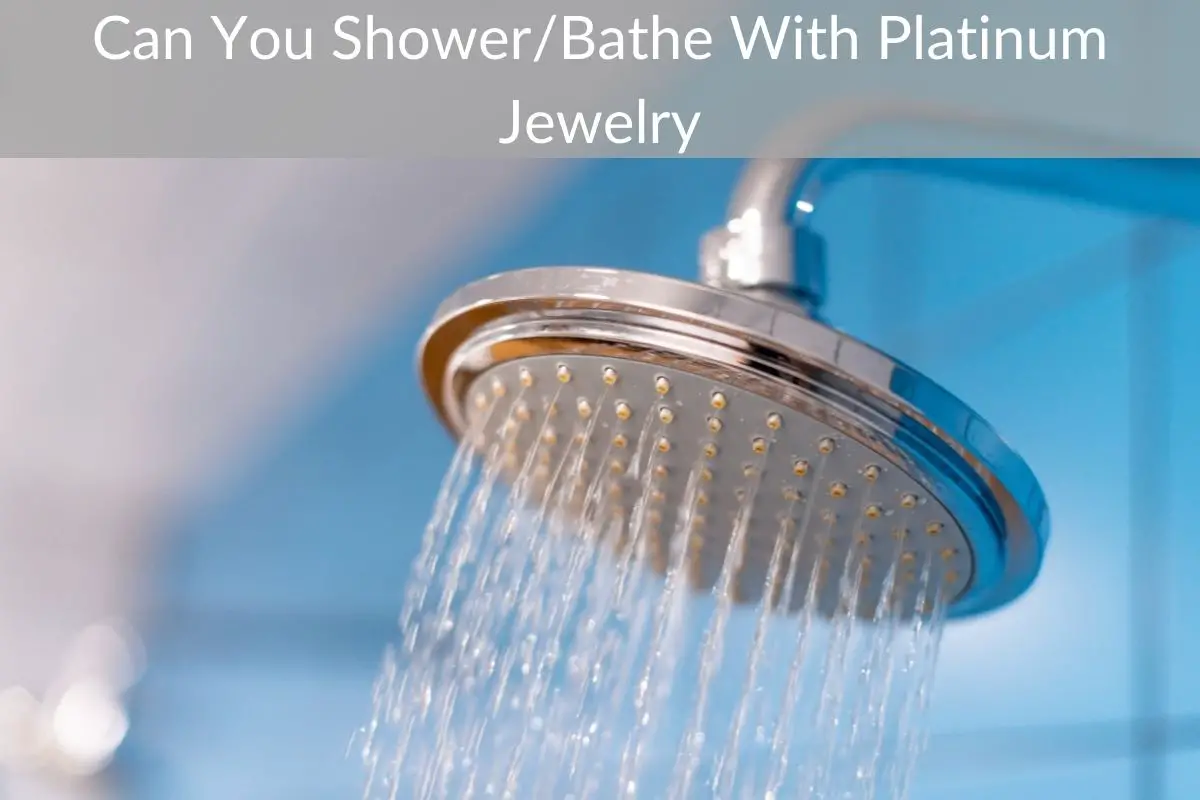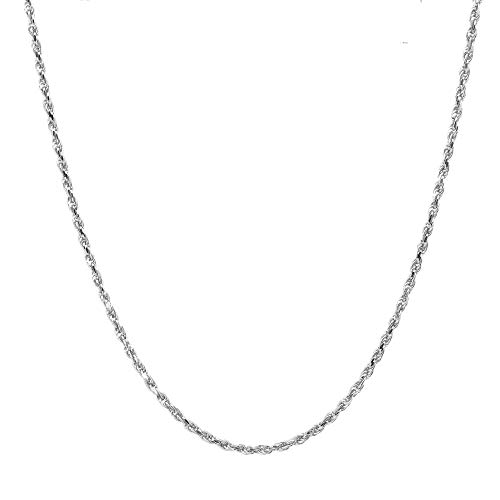Table of Contents
The list of dos and don’ts when it comes to jewelry is pretty long. Talking about the elegant and cool look of platinum, the biggest reason behind this metals popularity is that it’s strong. In fact, platinum is rarer than gold and lasts a lifetime. It resists tarnishing and chipping due to its hypoallergenic properties.
*This post may contain affiliate links. As an Amazon Associate we earn from qualifying purchases.
This is why platinum jewelry is safe to wear in the shower. Since platinum does not cause an allergic reaction, you can wear it all time if you have sensitive skin. Platinum itself is a pure white metal and is made stronger by adding a small amount of copper.
Compared to other precious metals, platinum has a few similarities and differences. For example, white gold is made with pure gold and alloys, such as palladium, nickel, copper, and silver. The addition of different alloys gives white gold and white appearance, similar to platinum. However, that’s where the similarities end. Since white gold has a high amount of nickel in it, it causes skin rashes.
To see the most popular platinum jewelry just click here.
What Happens When You Wear Platinum in the Shower?
Since platinum jewelry contains a high ratio of pure white metal, it lasts longer than gold and white gold. However, it is not stronger than the former metal, and its shine wears off with time.
When it comes to white gold, it can be re-plated with rhodium to restore its luster. The same cannot be done for platinum. While this white metal does not tarnish, it does develop patina. After coming in contact with chlorine, which is usually found in swimming pools, you will start to see the jewelry change color. It will develop a slightly greenish-brown tinge. Some people like this change and think it gives the jewelry an antique look.
While a little water won’t hurt your platinum jewelry, the chemicals in your shampoo, conditioner, and moisturizers will. This is why you should err on the side of caution and take off your jewelry when getting in the water.
Platinum vs. Other Metals
We have already established that wearing platinum jewelry exposes it to wear and tear and scratches. You will notice the jewelry lose its shine, and the metal will gradually darken. Let’s take a look at how other jewelry reacts to water:
Solid Gold Jewelry
You can shower while wearing solid gold jewelry. Whether you are wearing rose gold, yellow gold, or white gold, water will not affect the metal. However, the jewelry might lose some of its shine.
Gold Plated Jewelry
As the name says, this jewelry is merely plated with gold water. The outer layer will wear off after a while, exposing the metals underneath that are susceptible to corrosion. Also, moisture leaves scratches on gold-plated jewelry, giving it uneven coloring.
Diamond Jewelry
On the Scale of Hardness, diamond sits at the top. It is stronger than gold, platinum, and silver. Exposing it to water won’t damage it. However, the soap scum in the shower will create a thin film on it, causing the rock to lose its shine.
Sterling Silver Jewelry
Sterling silver is susceptible to tarnishing, and the chemicals in your shampoo will affect its appearance. The only way you can shower with sterling silver is when you are using a mild soap. Don’t forget to dry the jewelry with a towel immediately.
Stainless Steel Jewelry
Good quality stainless steel will not tarnish in water. However, it can be a little difficult to get your hands on stainless steel jewelry with a low alloys ratio. If you want to avoid this mess altogether, go with surgical stainless steel, as it is extremely durable and can withstand the beach, pool, and shower.
Pearl Jewelry
Us telling you not to shower with your pear jewelry may seem odd when you consider the fact that this gemstone is cultured in water. However, once it’s outside the shell, any type of water mixed with oils, acidic products, shampoos, soap, or other chemicals can damage the surface of the pearl. This is why you should wipe down pearls with a soft muslin cloth.
Cubic Zirconia Jewelry
Zirconia is a manmade mineral that looks like diamonds. Exposure to water will ruin the gemstones in the jewelry and the overall design.
Rhodium Plated Jewelry
White gold and silver are two of the most popular options in rhodium-plated jewelry. Both these metals should not be exposed to water. The former loses its shine and the latter its original luster.
Following is a table that sums up which jewelry can and cannot be worn in the shower:
| Jewelry | Exposure to Water |
| Can I Wear Platinum in the Shower? | Yes and No. Exposure to water will make platinum develop patina, which refers to a slight change in color that some people like. |
| Can I Wear Stainless Steel Jewelry in the Shower? | Yes. However, if your stainless steel jewelry is made of low-quality metal, its shine will wear off. |
| Can I Wear Diamond Jewelry in the Shower? | Yes and No. If your diamond jewelry has an intricate design, soap scum will get into the crevices and damage the metal. Though, water and chemicals will not affect the diamond. |
| Can I Wear White Gold in the Shower? | Yes. However, make sure that you dry it immediately after getting out of the water. |
| Can I Wear Silver in the Shower? | No. Silver will lose its shine underwater. |
| Can I Wear Solid Gold in the Shower? | Yes. Water does not affect solid gold because it is a strong metal. |
| Can I Wear Gold Plated Jewelry in the Shower? | No. Frequent exposure to water will wear off the gold covering. |
| Can I Wear 14K Gold in the Shower? | No. Since it also contains other alloys, jewelry made from 14K gold is less durable. |
| Can I Wear 18K Gold in the Shower? | Yes. Since it contains a high ratio of pure gold, it won’t tarnish underwater. |
Conclusion
You can and cannot bathe wearing platinum jewelry. This might sound confusing, but the reason behind this is that because platinum is resistant to corrosion and is hypoallergenic, it is safe from water. However, when it is exposed to moisture repeatedly, its shine wears off, and that’s when the metal develops a patina.



